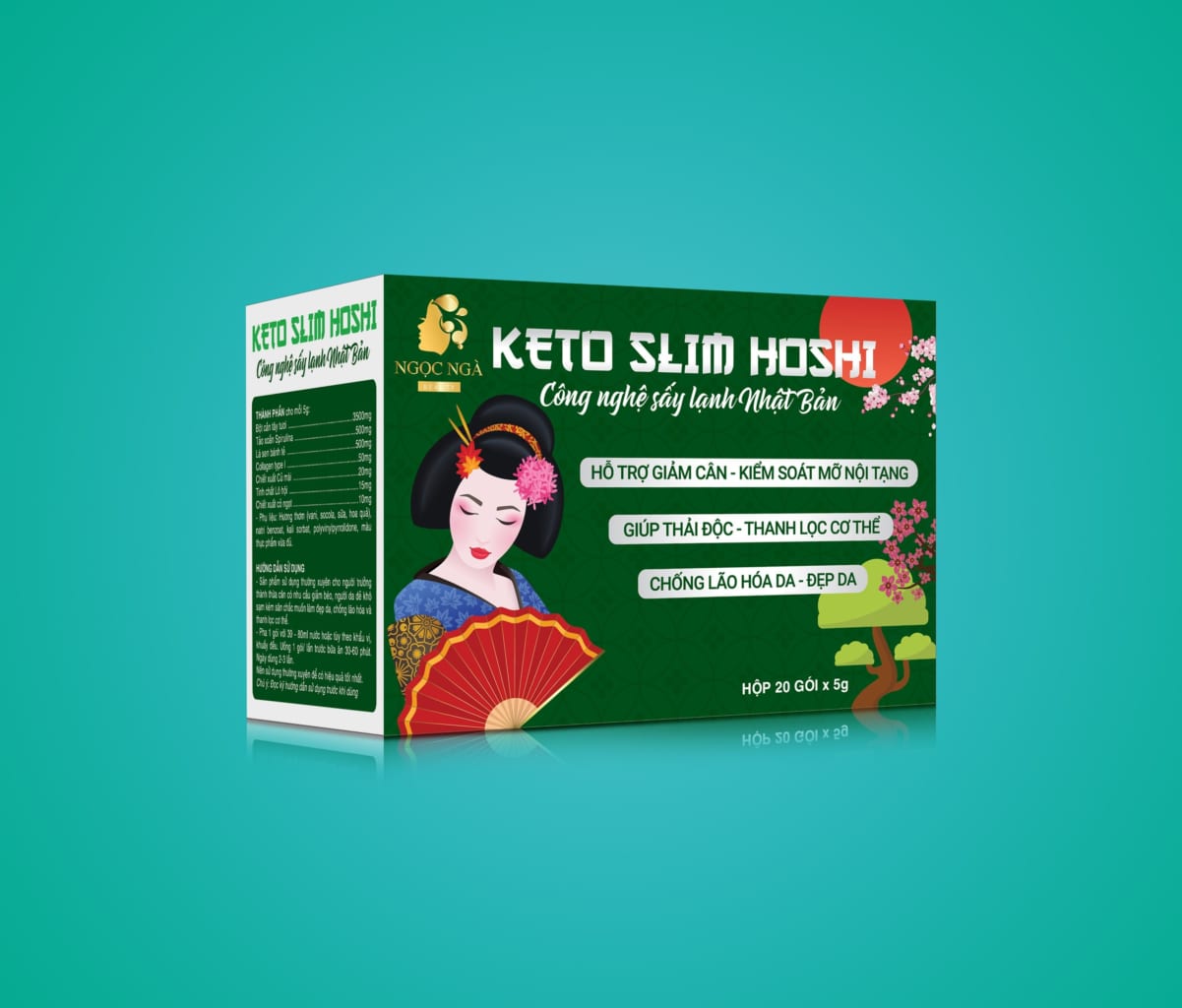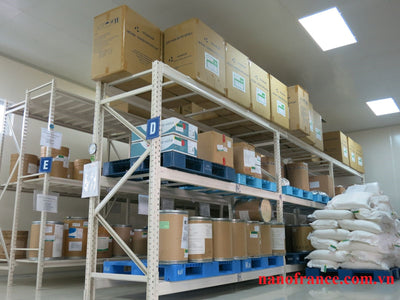FUNCTIONAL SUGAR – NO CALORIE SUGAR SUBSTITUTE
Along with high blood pressure, diabetes, cancer, overweight and obesity are now considered a new "epidemic" of the 21st century due to the rapid increase in health consequences and the burden of disease it causes. Therefore, the use of functional foods containing functional sugars is being widely applied in the prevention and support of this obesity disease.
So what is Functional Sugar - Zero Calorie Sugar Substitute? Its role and application in supporting the treatment of obesity today.
Why use Function Line instead of Diameter Line?
In Vietnam, according to a survey by the National Institute of Nutrition, there are currently nearly 7 million overweight and obese people, accounting for more than 8% of the population. In large cities, the overweight and obesity rate is up to 30%.
What is more worrying is that when analyzing the results of nutritional surveillance, it shows that the age of overweight and obese people is getting younger and the level of severe obesity is increasing.
The underlying cause of the above condition is the use of unbalanced, high-sugar, nutrient-rich foods in the daily menu.
Besides treatment methods and regular exercise, the use of functional foods is also very effective in preventing and supporting the above disease.
What are Functional Sugars – Alternative Sugars?
Functional sugars are low-calorie sugars that have many health benefits such as preventing tooth decay. They also have the ability to stimulate the digestive system…
With its “zero calorie” properties, functional sugars are increasingly used in the production of functional foods – food products that support functions in the body. The products have nutritional effects or not, creating a comfortable state for the body, increasing resistance, and reducing the risk of disease.

Functional Sugar – Zero Calorie Sugar Substitute
The Role of Functional Lines
Low-calorie sugars are an important part of the functional food group and are being used more and more by patients. There is also more and more research on this type of sugar because it has many beneficial properties for health such as:
Anti-obesity,
Anti-diabetes,
Anti-cavity
Has the ability to stimulate the digestive system, etc.
With the above advantages, functional sugar has become an indispensable food for people on a diet .
To meet the increasing demand of people, today many types of functional sugars have been produced by many different methods with high purity such as palatinose, fructooligosaccharide, xyloolisaccharide, galactooligosaccharide, sorbitol, mannitol, xylitol, erythritol...
Low-energy sugar (zero-calorie sugar) has attracted the attention of many researchers because it can be produced by fermentation from microorganisms. The product has the delicious taste of sucrose, and has many biological activities that are beneficial to the human body, especially lower in energy than other sugars.
Some typical functional lines
Xylitol
Xylitol is a natural sugar found in fruits, vegetables, and grains such as raspberries, mushrooms, corn, and oats. Plant-derived xylitol can be used as an artificial sweetener. Xylitol has been shown to be safe for people with diabetes, obesity, and dieting.

Xylitol
Erythritol
Erythritol is a white, 4-carbon sugar alcohol (or polyol) that is a fine powder or crystal. It has a sweetness of about 60-70% that of sucrose in a 10% (w/v) solution. This natural sweetener has been approved for use as a food additive in the United States and many other countries around the world.
Erythritol is found in fruits such as grapes, peaches, pears and watermelon. Currently, erythritol is produced commercially for application in the production of diet foods such as beverages, confectionery, chewing gum, chocolate, etc.

Erythritol
Sorbitol
Sorbitol is a sugar alcohol found in fruits including apples, pears, and prunes. It can be made by reducing glucose, changing the aldehyde group to a hydroxyl group. However, the human body metabolizes sorbitol slowly. This makes it a sugar substitute that does not cause spikes in blood glucose. Additionally, it is lower in calories, making it great for those looking to lose weight.
Mannitol
Mannitol is another sugar alcohol that is an isomer of sorbitol. As such, the molecular weight and chemical formula of both sorbitol and mannitol are similar. They differ only in the orientation of the hydroxyl group on the second carbon. The intestinal absorption of mannitol is quite low. Therefore, mannitol is used as a sugar substitute, especially in diabetic foods.
Some other functional lines
Some other functional sugars such as fructooligosaccharides and xyloolisaccharides are added to functional foods to act as prebiotics with the purpose of enhancing the activity of probiotics (beneficial bacteria active in the intestine), increasing resistance, and absorbing nutrients...
Benefits of functional sugar
No calories
Most functional sugars are considered a zero-calorie sweetener, because they contain very few calories per gram.
Calorie content of some polyols
|
Sugar alcohol |
Erythritol |
Mannitol |
Lactitol |
Isomalt |
Maltitol |
Xylitol |
Sorbitol |
|
Content (Calories/Gr.) |
0.2 |
1.6 |
2.0 |
2.0 |
2.1 |
2.4 |
2.6 |
|
Glycemic index |
0 |
0 |
6 |
9 |
36 |
13 |
9 |
Dental Benefits
Sugar consumption mostly has negative side effects on teeth and mouth such as tooth decay, plaque, etc. Harmful bacteria in the mouth can use sugar for energy. When these bacteria have enough energy, they will grow rapidly and secrete acid that corrodes your tooth enamel. Erythritol and xylitol are oral-friendly products. Harmful bacteria in the mouth cannot digest them and cannot get energy from them.
Does not increase blood sugar and insulin levels
Healthy people who use functional sugars often do not have any changes in blood sugar and insulin levels, and do not affect cholesterol, fat levels, etc. For people who are overweight, have diabetes or other problems related to metabolic syndrome, functional sugars seem to be a great substitute for sugar.
Applications of functional curves
Functional sugars are used safely as non-caloric sweeteners in many countries because they have no (or very little) ability to be metabolized in the body. Recommendations indicate that functional sugars do not cause any adverse reactions when used with other foods.
Based on published research data, most functional sugars are certified as safe for use in food, so they are increasingly widely used in the food manufacturing industry.
In the beverage industry, functional sugars are used to sweeten and improve the sensory experience of each product. For example, in the production of beverages such as tea, coffee, grapefruit juice, and some other fruit juices, adding sugar helps to mask the bitterness and astringency inherent in the product, so when consumers enjoy the finished product, it is difficult to detect.
From the benefits that xylitol and erythritol bring to teeth, people have applied them to supplement the chewing gum production process. In fact, in the chewing gum production process, people have researched and found many benefits from adding this sweetener.
The good heat stability, low moisture and almost no calories of functional sugar are excellent features applied in the production of chocolate candy. When using functional sugar. makes the product have a richer flavor and gloss than traditional chocolate. as well as helps cakes and bread become products accepted and widely used by dieters and diabetics.

Application of functional sugar in chocolate production
Nanofrance Company applies modern technology to the production of low-energy functional foods.
With current practical needs, low-energy sugars are being researched and produced in many countries around the world on an industrial scale. People have found one of the optimal methods to produce this low-energy functional sugar is from the use of microorganisms. Through a series of previous studies, people have identified several strains of microorganisms capable of biosynthesizing some functional sugars. Moreover, the groups of organisms studied have many beneficial characteristics when used on an industrial scale such as heat resistance, high osmotic pressure resistance, simple fermentation process, etc.
In Vietnam, Nanofrance is proud to be one of the 10 pioneering units manufacturing low-energy functional foods for people losing weight, obesity, diabetes, etc. on the most advanced technological line in the world.
Currently, the products the company produces for partners have been well received and received positive feedback from consumers nationwide and are aiming to export to foreign markets. With the criteria of bringing the best products from the heart of the manufacturer to consumers, always updating the newest and best materials, Nanofrance has created natural low-energy products and the best quality. Typical products below:

Products applying modern technology with alternative sugar ingredients









